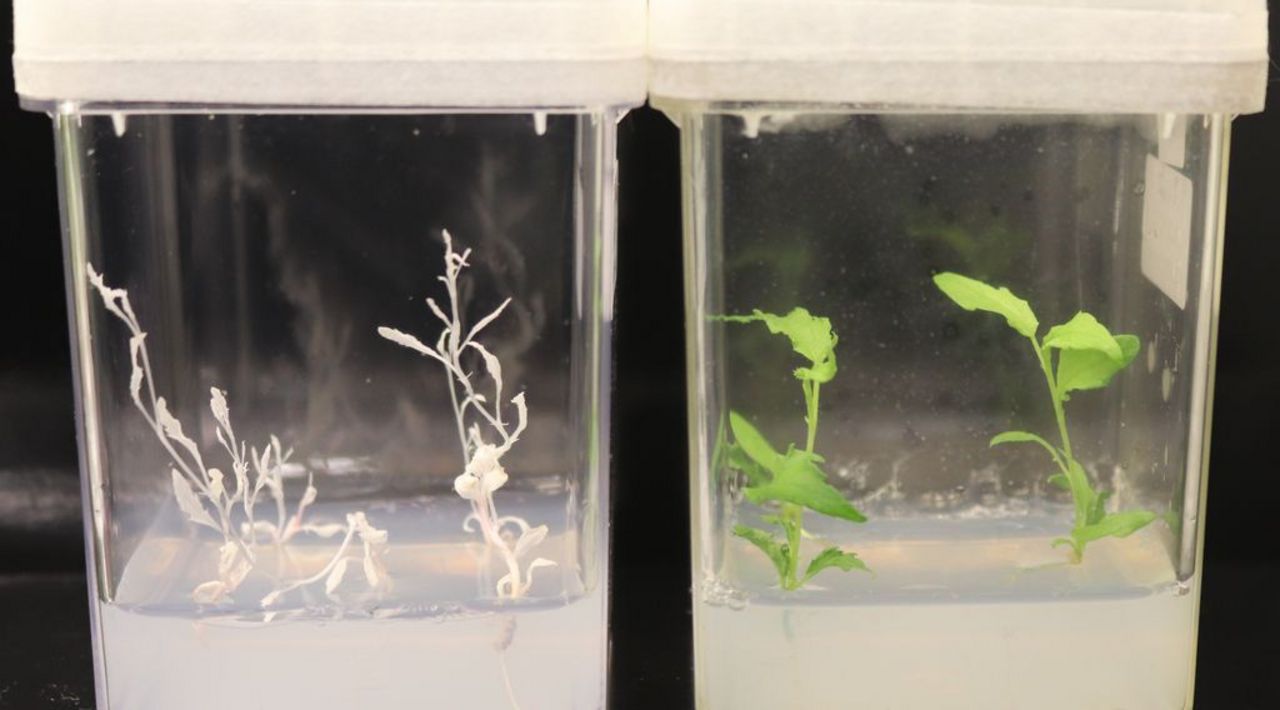Project
DNA-free Genome-Editing in poplar

Development of a DNA-free genome editing system in poplar by transient Cas9/gRNA plasmid and ribonucleinprotein transfer into protoplasts and germinating pollen
Since July 2018, the new project "aProPop", funded by the Federal Ministry of Education and Research, has been running at the Thünen Institute for Forest Genetics. The project aims to develop a method for DNA-free genome editing in poplar trees.
Background and Objective
- Fast growing world global population and rapid progressing climate change are significant challenges for the future. Besides ensuring sufficient amounts of high-quality food, also adequate amounts of renewable material resources have to be produced, e.g. wood, harvested from trees either grown in forests or in short rotation coppices. The new set of novel breeding techniques, in particular CRISPR/Cas9, offers the opportunity to significantly accelerate tree breeding. This project aimed to methodically test two different kinds of CRISPR/Cas9 systems in poplar leading to non-transgenic genome edited plants.
Approach
Two different kinds of CRISPR/Cas9 systems will be tested in poplar: (i) plasmid containing Cas9 gene and guideRNA (gRNA) and (ii) DNA-free Cas9/gRNA ribonucleinprotein complex. Both systems containing gRNA for PHYTOENE DESATURASE (PDS) gene will transiently be transferred to both poplar protoplasts and germinating pollen. CRISPR/Cas9-treated protoplasts will be cultivated until the callus stage. Obtained calli will be screened for edited sites in the PDS candidate gene, and plants will be regenerated. Germinating pollen treated with both complexes (CRISPR/Cas9 plasmid DNA and ribonucleinprotein) will be used to pollinate female poplar. We are able to perform crossings in 6-8 month-old poplar. F1 seedlings will be screened for edited sites in the PDS gene, and after 6-8 months again flowering will be induced and crosses done. F2-seedlings will be screened for homozygous edited sites in the PDS gene.
Thünen-Contact

Involved Thünen-Partners
Funding Body
-
Federal Ministry of Education and Research (BMBF)
(national, öffentlich)
Duration
6.2018 - 3.2022
More Information
Project funding number: 031B0535
Funding program: BMBF - BioEnergie 2021 - Forschung für die Nutzung von Biomasse
Project status:
finished

![[Translate to English:] [Translate to English:]](/media/_processed_/f/3/csm_2022_Titelbild_gross2_Saatgut_in_Hand_9ffb8f5748.jpg)
![[Translate to English:] [Translate to English:]](/media/_processed_/f/3/csm_2022_Titelbild_gross2_Saatgut_in_Hand_c17270fcc0.jpg)
![[Translate to English:] Logo des Bundesministerium für Ernährung und Landwirtschaft](/media/allgemein/logos/BMEL_Logo.svg)